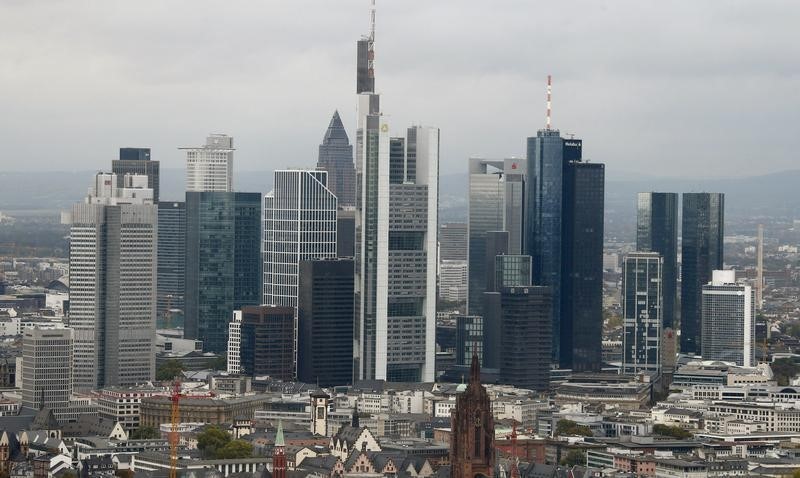BERLIN (Reuters) - Germany's private sector expanded in April, a survey showed on Wednesday, and while the rate of growth was weaker than in March, it still pointed to solid growth in Europe's largest economy at the start of the second quarter.
Markit's final composite Purchasing Managers' Index, which tracks activity in the manufacturing and services sectors that account for more than two-thirds of the economy, stood at 54.1 in April after a reading of 55.4 in March.
It came in slightly below the preliminary estimate of 54.2 but still comfortably above the 50 mark that divides growth from
contraction.
Business activity in the service sector increased at a slower rate than in March as new work failed to flow in as fast.
Service providers were slightly more pessimistic in April about their prospects than they were in March, although they remained upbeat overall.
But Markit economist Oliver Kolodseike said the sector remained healthy overall: "German service sector output continued to expand at a robust rate, despite rising at the weakest rate since January."
Service firms slammed the brakes on hiring - staffing levels grew at their slowest rate in around a year, with some firms blaming that on the introduction of Germany's first nationwide minimum wage, of 8.50 euros per hour, in January.
Across the private sector new business growth slowed and companies resorted to working through backlogs. While companies continued to hire new staff, the rate of recruitment slowed.
Companies sought to offset higher input costs by raising output prices, though these did not rise quite as sharply as input prices.
